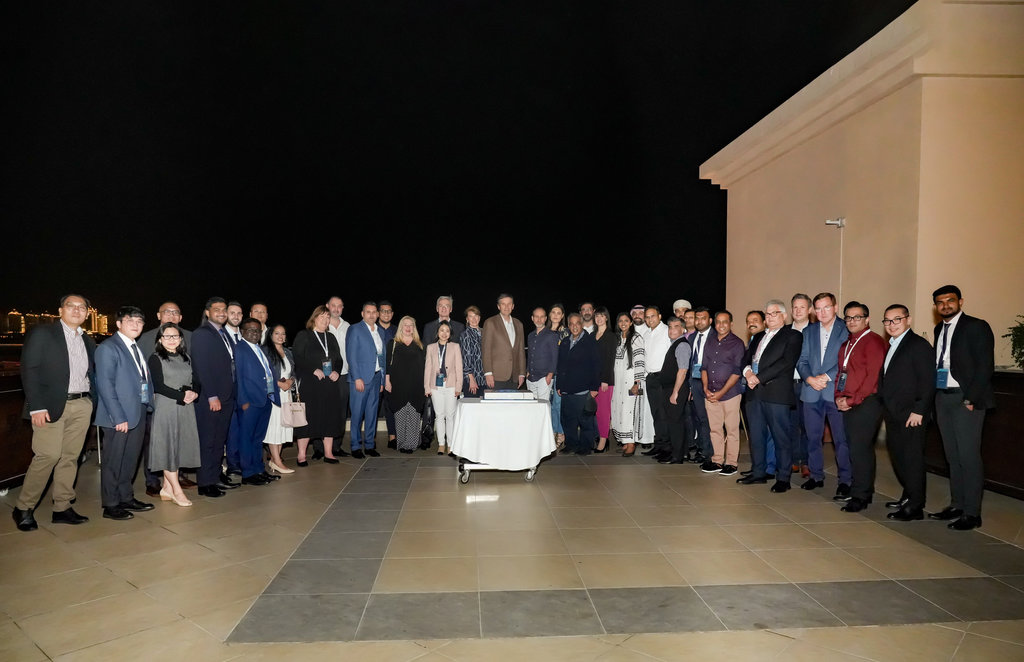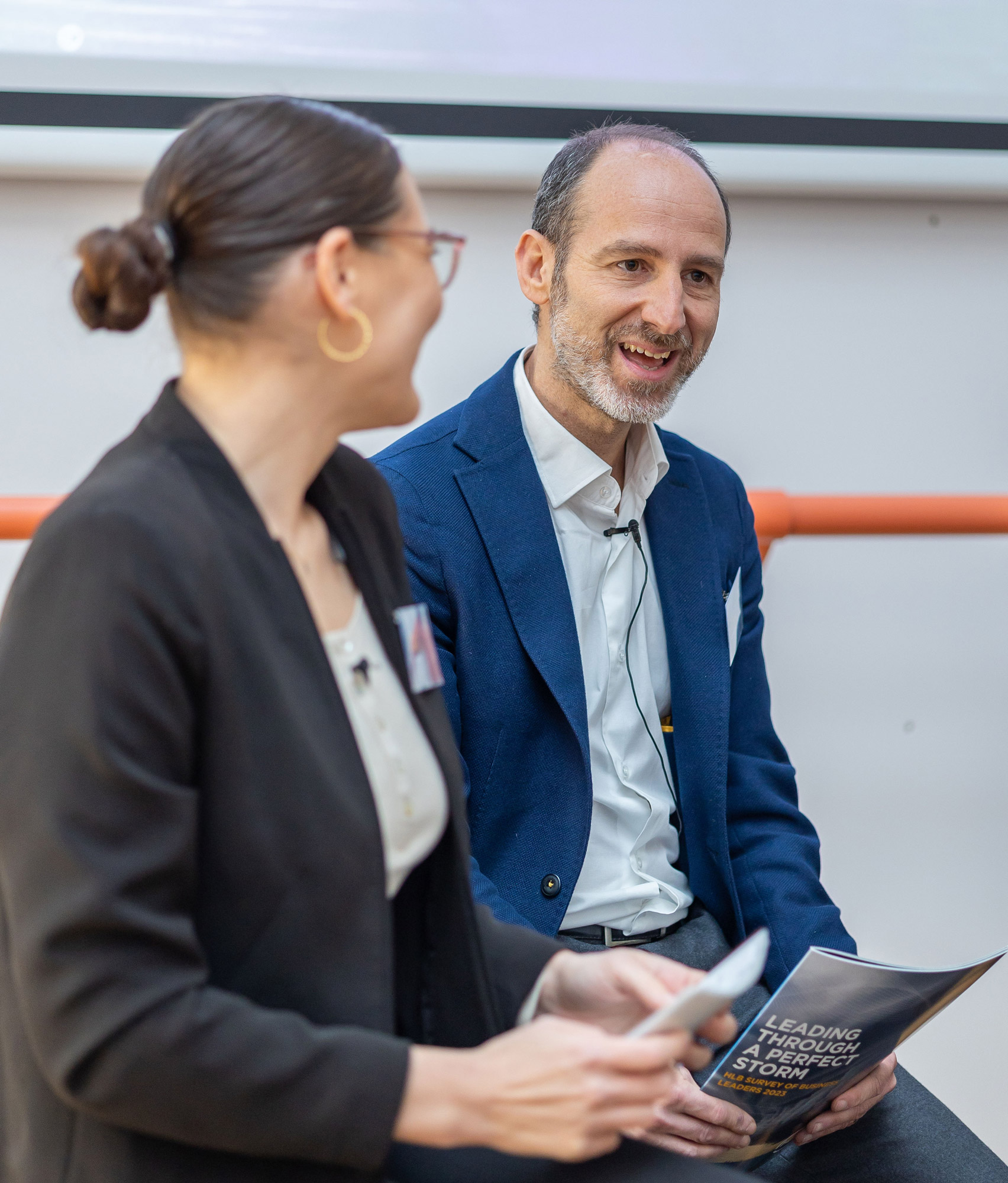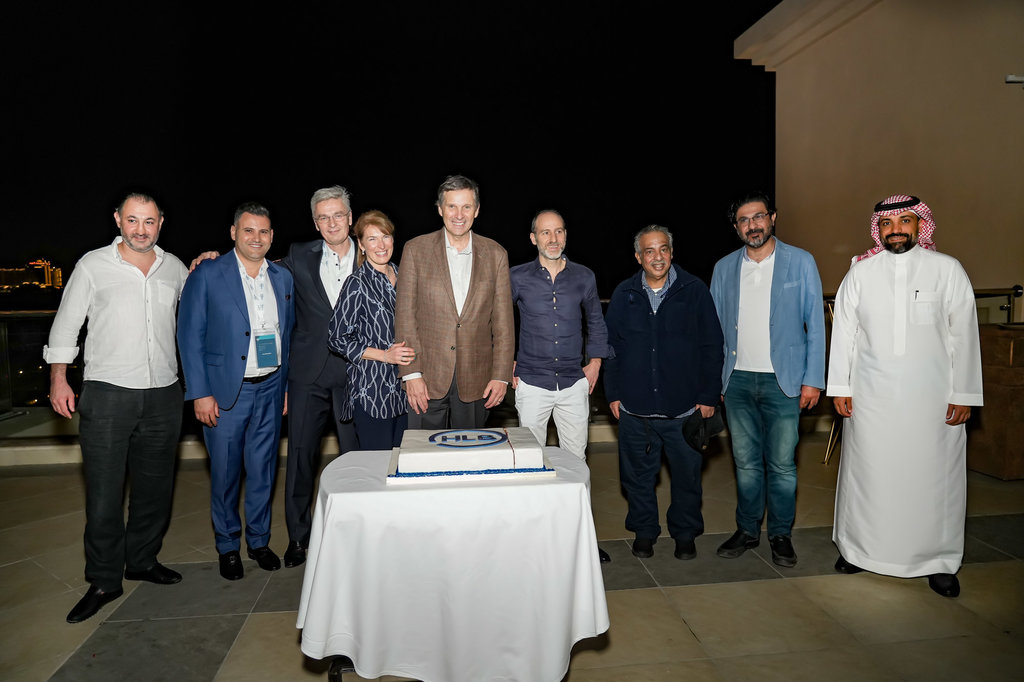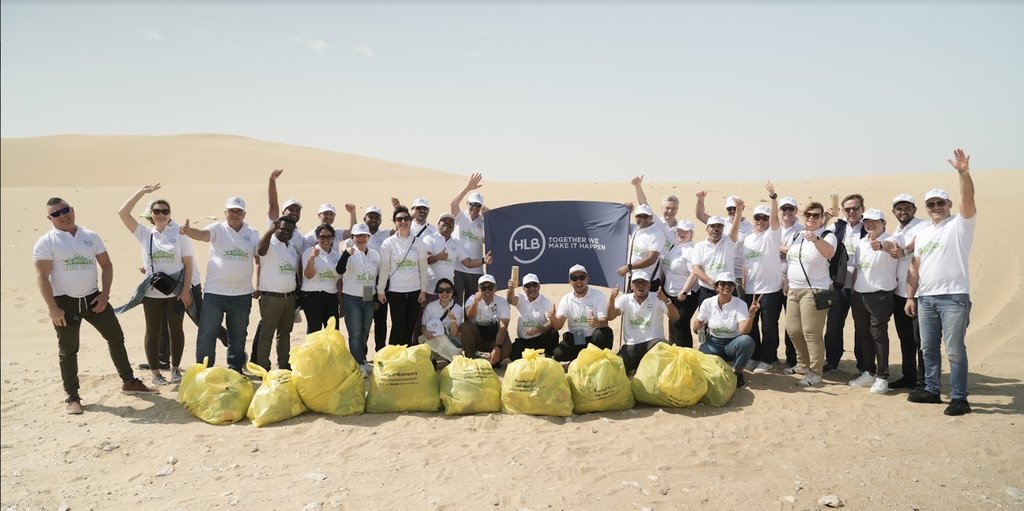Talking Heads: HLB International
Bill Hagaman appointed Chairman to future-proof HLB International
With the new Chairman-elect assuming office at HLB International, Zoya Malik, Editor in Chief, International Accounting Bulletin spoke to him and CEO Marco Donzelli about the strengths and vision Hagaman brings for the growth of the network

Zoya Malik:
What attracted you to taking the helm as Chairman at HLB International?
Bill Hagaman: HLB’s innovative thinking over the past years, guided by our CEO Marco Donzelli and my predecessor Corney Versteden, has resulted in the network growing at an exponential rate, closing last year with record breaking turnover.
I have been a partner in Withum for the last 37 years with the last 13 as CEO, they have been a long-time member of HLB USA and over the years we have been impressed with the level of advanced thinking that is propelling the network and its people forward.
I look forward to working with Marco on achieving our vision for continuing the growth of the network, future proofing HLB, and increasing value for our people globally. Becoming the HLB Chair allows me to work more closely with our HLB communities around the world because they are at the heart of what we do and, to echo our slogan, together we make it happen. We are committed to constantly reviewing our processes to adapt to, or better, anticipate changing market conditions and improve the impact of HLB globally. We maintain high quality standards across the network to promote trust and confidence among our clients worldwide and offer a top-class service across audit, accounting, tax, and advisory services. I want to be part of these processes and I want to be part of our mission to create a better future for our people, clients, and the communities we operate in.
Zoya Malik:
Why is Bill the best person for the job?
Marco Donzelli: Corney Versteden and I made great strides in delivering our 2023 network strategic plan. I am proud to say that our network will be future-proof in relation to technology, talent and marketing management by the end of this year. As Corney’s tenure was coming to an end, we needed someone who would enable us to maintain this momentum. From working with Bill over the years, I know for certain that his experience and knowledge will help influence the next era of strategic growth and prosperity for our network.
Zoya Malik:
What will the challenges and opportunities be for you in this new role, in your relationship with the Board and in working with the CEO?
Bill Hagaman: Helping our people through the challenges around talent, innovation and ESG will be part of our efforts. Additionally, working with the HLB Council to ensure high standards of corporate governance are upheld and evolved.
It is my aim, as Chairman, to lead the HLB Council in setting the agenda for the network over the coming years and to promote and encourage a culture of open debate between us and HLB people around the world. The long-term success of the HLB Network is a key challenge I look forward to addressing by working closely with Marco to ensure the network’s obligations to our stakeholders are understood and met whilst keeping the network’s culture, people, and values as top priority.

HLB Global CEO, Marco Donzelli introducing Bill Hagaman as the new HLB Chairman during his opening address at the HLB Middle East & India Subcontinent Regional Meeting in Quatar.
Zoya Malik:
How do you see Bill supporting you in your role and in HLB International’s growth?
Marco Donzelli: Bill has a vast experience in leading complex organisations. I look forward to working with him throughout the next few years, and becoming a better leader, for the benefit of HLB. More specifically, I believe what set Bill’s leadership apart are his pragmatic approach, his courage when making decisions and his forward-looking approach to business. Bill thinks big, and this is the right time for HLB to think big.
Zoya Malik:
How will you manage your duties as Chairman and at Withum?
Bill Hagaman: Most of my duties at Withum have freed up since my tenure as CEO ended on January 1, 2023. This means that I can dedicate my time to working with Marco and focusing my efforts on the future progress of HLB.
Zoya Malik:
What are your leadership strengths that have contributed to creating a stable and diverse corporate culture?
Marco Donzelli & Bill Hagaman: Putting our people first and helping them to embed positive corporate cultures and inclusive working environments has been a primary focus. Our leadership styles are similar as we set direction and empower our people to deliver great results.
We realise that you can only be successful as a team. We value the input of others as we know that this leads to a more stable and diverse culture where people are engaged and feel valued.
To show that we foster an inclusive culture we have appointed a global Diversity Equity & Inclusion (DEI) leader as well as a global DEI Council with senior representatives from member firms all around the world. The DEI council members are ambassadors for diversity and inclusivity in their respective countries and regions. Just recently we started a social media campaign with personal stories to highlight the importance of DEI. We have set some clear and ambitious goals for gender diversity and the inclusion of underrepresented groups. Step by step, we are working together to reach these goals. We are determined to build on this foundation in the future, making DEI – and more widely ESG - an important element of our new strategy.
Zoya Malik:
How do you embed your vision across member firms within the US and across different regions? What are the nuances in company culture across the world? How does HLB bring member firms together to understand differing internal and client needs?
Marco Donzelli & Bill Hagaman: As mentioned, at HLB we understand that our business is about people. We work hard to build trust by caring for those inside and outside our network. We spread our vision to our people by living our values. It might sound cliché, but we live our values every day and that makes all the difference.
At the end of the day, we are all human beings. If you treat people with respect and build trust by living your values in all you do, it reflects on how you conduct business, and it inspires others, and this becomes your culture. You can feel it across the HLB firms, and it starts at the top.
There are lots of nuances in company and country culture. We purposefully recruit global minded professionals with language skills and international experience. We also train on unconscious bias, so firms are mindful of these differences and communicate appropriately.
It’s all about communication. Effective communication is always a challenge, yet the secret to the success we expect to have. We do that through face-to-face interactions at conferences; sharing reports on our activities with HLB people; and through smaller practice group meet-ups.

HLB Global CEO and a host of HLB delegates welcoming Bill Hagaman as the new HLB Chairman at the recent HLB Middle East & India Subcontinent Regional Meeting in Doha, Qatar.
Zoya Malik:
What trends are HLB firms seeing globally at the moment in terms of M&A activity?
Marco Donzelli & Bill Hagaman: The M&A trend in the accounting profession is incredible and you see its ripple effects around the world. We see remarkable growth and expansion in our firms in the US where the economy is resilient. In Europe there is also continued growth particularly over the past year in France, Ireland, Denmark, Germany and the Netherlands.
Many HLB firms grow through acquisition as well as investments in new markets and services. This success didn’t happen overnight; HLB firms have prepared well over time by investing in their people and technology that improves the service they give to their clients. This allows firms to pivot toward the future and expand inorganically.
The M&A trend in our profession will continue as we all compete for talent and clients. This requires resources that can come with larger critical mass of our firms with the network.
Broadly speaking, Chinese firms used to be very active in consolidations and some of them (outside our network) were also expanding overseas. However, it has been quiet in recent years due to covid restrictions and geopolitical uncertainties. We no longer see large scale M&A activities in the accounting industry in Asia Pacific, even in investment hotspots like Singapore.
Zoya Malik:
What trends are you seeing in the growth of accounting firms in the US compared to other regions?
Marco Donzelli & Bill Hagaman: U.S. firms continue to grow at double digit pace, mostly due to the robust and resilient economy in America, and the increased demand for accounting services. This is not the case everywhere and we need to be mindful of each regional situation. We see a continued trend for growth in the industry in the short term and we expect slower growth as the overall US economy cools down later this year. Firms continue to grow through increased demand for traditional services like audit and tax, and firms expanding into non-traditional services. The non-traditional services are often higher margin and scalable like advisory and technology. We expect our firms to continue to grow to but at a more measured pace.
One of the growth factors for US firms includes M&A activity, some of which is spurred by Private Equity firms investing in CPA firms. Firms then have the resources to expand. We have also seen a good deal of M&A beyond adding other accounting firms. For several years now, US firms have been adding technology companies, business management companies, and organisations that can contribute to expanding the C services.
Firms need to be prepared for a continued war on talent, and investment in technology and innovation. Alternative business models and private equity continue to drive change with new ways to solve needs. This is further driving up costs for talent and stretching resources while creating uncertainty but this is also opportunity and we believe our US firms are up for the challenge.

As part of the HLB CSR strategy, HLB delegates from around the world helped with a desert clean up in Quatar during the HLB Middle East & India Subcontinent Regional Meeting 2023.
Zoya Malik:
What’s needed in terms of strategy to retain membership?
Marco Donzelli & Bill Hagaman: The strategy will continue around helping our network to be more innovative, future-proof and allowing them to attract and retain talent. If we can achieve that, our value proposition will be unsurpassed.
The words that pop up in my mind are clear direction, clarity, transparency, and innovation. Furthermore, the added value that can be delivered to all the network in terms of renewals (profit), but also in terms of support (tools, advice, etc) in strategic areas like technology, marketing, people and ESG.
From a people’s perspective I think it is important that we have redefined our organisational purpose beyond financial performance. The new purpose puts people first which is key and includes both environment and community. This is adding value to the HLB brand, especially for the attraction and retention of future generations in the workforce. We need a continuous flow of creative and ambitious people, committed to our purpose and values, to ensure business continuity and innovation for years to come.
Zoya Malik:
What’s your approach to developing and delivering on HLB’s DEI policies?
Marco Donzelli & Bill Hagaman: We lead with a human-centric approach that boosts morale. We celebrate people from different backgrounds, cultures, identities, locations and services. We tell a true and consistent story about DEI and walk the talk, however difficult that can be sometimes.
In our next strategy – with horizon 2027 - we plan not only to put emphasis on the importance of inclusive leadership but also on inclusive partnerships with our clients and suppliers. The whole ecosystem needs to value diversity and inclusivity to really move the needle in this area. We need to include DEI in all our activities, services, processes, systems, etc. And of course, it is of the utmost importance that each and every one of us holds ourselves accountable.
Zoya Malik:
What mindset do you think organisation’s need to have in a changing world to attract new talent and support clients in meeting their growth targets?
Marco Donzelli & Bill Hagaman: If we put our people first and design our workflows and benefits around this, we will be able to attract and retain staff.
We need to be visionary and proactive to prepare for a future generation of clients, staff, and services. We also need to be down-to-earth and pragmatic to demonstrate visible values and benefits to clients and other stakeholders, rather than just visualising blueprints.
There is no denying that there is a significant talent shortage in the accounting profession. Firms need to be more invested in the staff, more innovative and progressive with their business model. This profession has done the same thing, the same way, for too long. The industry is competing heavily with newer, more attractive industries such as tech and gaming, who are better placed to offer more exciting roles, career paths and salaries. Coupled with lower enrolment rates in traditional accounting and finance disciplines at university, it's time the industry thinks radically about how to hire and retain more diverse skillsets.
Giving space to younger generations to develop fresh new ideas is necessary for the image of the profession. Work on clear succession planning and filling the pipeline with unique, innovative people with drive and purpose. Our staff should mirror the changes in society. The same goes for our services.
We are convinced that learning is at the heart of all our people activities and projects. That is why we have invested in the implementation of a global HLB Skills Hub, to support all HLB people with their upskilling and reskilling efforts. The Skills Hub also includes the functionality to build an internal marketplace where our people can find interesting opportunities to build their career in different disciplines, and in different parts of the world.
Recently we introduced a new executive learning programme in partnership with Cambridge University, called HLB Building the Future. This is linked to our current and future strategy. The aim is to build a strong talent pipeline in our organisation so there is more to come in terms of opportunities and development programs for young and ambitious people.
Zoya Malik:
How important is community work to HLB?
Bill Hagaman: Making sure we operate in strong communities is crucial to our success and needs to be a critical component of any firm’s strategy.
Each year we host #HLBCommunities Day which is our annual network-wide CSR initiative where the network comes together to support our local communities. It's our way of saying 'thank you' to the places in which we live and work.
Engaging effectively with our global communities is an integral part of our CSR strategy. This is a crucial activity for the network to achieve our societal goals. In fact, in our current 2023 strategy Shaping our Shared Future, we have set achievable yet ambitious objectives in relation to the three pillars of diversity and inclusion, the environment and communities. This more united approach to CSR will enable HLB to continue to power an inclusive, sustainable future for all its people and its ecosystem.
Zoya Malik:
You recently published the annual Survey of Business leaders. This year explored the volatile business landscape. What advice would you give business leaders ‘to weather the storm’ over the next 12 months?
Marco Donzelli & Bill Hagaman: Now in its fourth year, the Survey of Business Leaders, is our annual flagship campaign. This survey helps us gather insight from business leaders on the pressing issues of the day so we can inform more valuable, constructive conversations with clients.
Through almost 600 responses from over 60 countries, HLB looked at some of the critical leadership behaviours needed during a crisis, the type of actions CEOs should prioritise for 2023, and the benefits of longer-term thinking for future success.
Our research found that to weather these challenging times, leaders must demonstrate flexibility, integrity, and accountability to survive and prosper for the long-term. It was encouraging to also see that leaders are well along the maturity curve towards a more purpose-led business strategy and are looking to redefine ESG goals. Those who are purpose-led are better able to connect with their customer base, and well-placed to drive multiple programmes, innovate faster and deliver against their brand promise over the coming years.